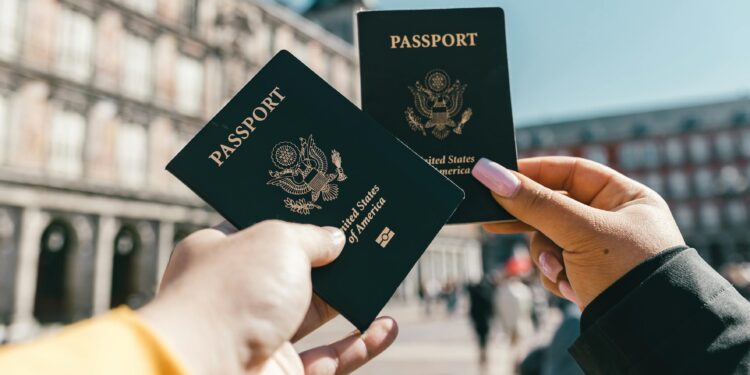On Tuesday, July 23rd, the Henley Passport Index revealed its latest rankings of the world’s most powerful passports and visa-free travelers. Singapore has claimed the top spot, offering its citizens visa-free access to 195 destinations. This represents a record high in the index’s nearly two-decade history. Following Singapore, the passports of Germany, France, Italy, Japan, and Spain are tied in second place, each providing access to 192 destinations without a visa.
South Korea, Sweden, Finland, Austria, Ireland, Luxembourg, and the Netherlands share third place, with visa-free access to 191 destinations. The United Kingdom, once the leader alongside the United States in 2014, now ranks fourth, alongside Belgium, Denmark, New Zealand, Norway, and Switzerland, with access to 190 destinations without a visa.
The United States has slipped to eighth place, granting visa-free access to 186 countries. This drop reflects a continuing trend over the past decade. The U.S.’s ranking is notably affected by its limited visa reciprocity, offering visa-free entry to only 45 nationalities, placing it 78th in the Henley Openness Index. This disparity highlights the gap between the number of countries Americans can enter visa-free and those allowed into the U.S. without a visa.
Dr. Christian H. Kaelin, chairman of Henley & Partners and creator of the index, noted, “The general trend over the past two decades has been towards greater travel freedom. However, the global mobility gap between those at the top and bottom of the index is now wider than it has ever been.” Afghanistan remains at the bottom, with its citizens able to access only 26 destinations visa-free.
The United Arab Emirates (UAE) has shown significant improvement, now ranking ninth, a notable rise from 62nd place in 2006. This climb is attributed to the UAE’s strategic efforts to become a global hub for business, tourism, and investment.
These rankings not only reflect the travel freedom afforded by these passports but also correlate with broader economic factors, including foreign investment and international trade relations.









